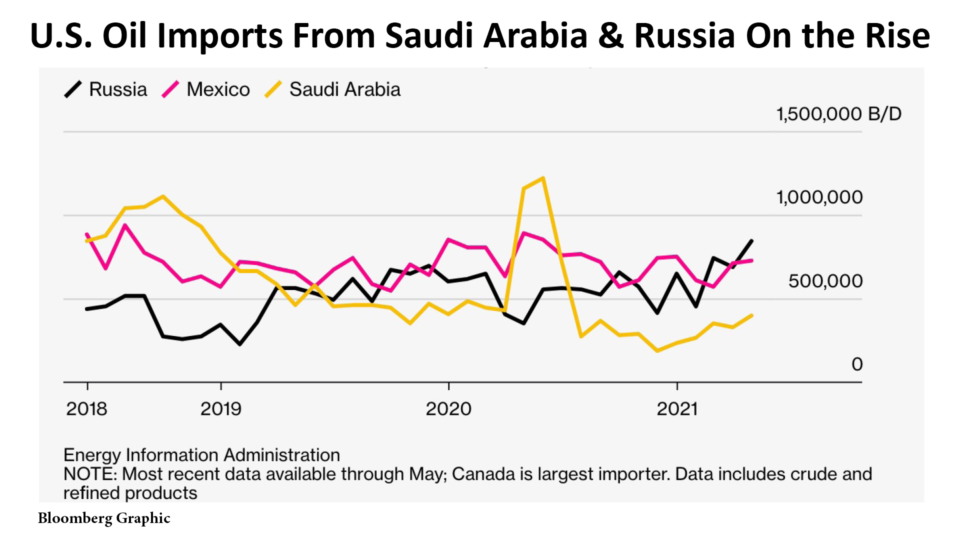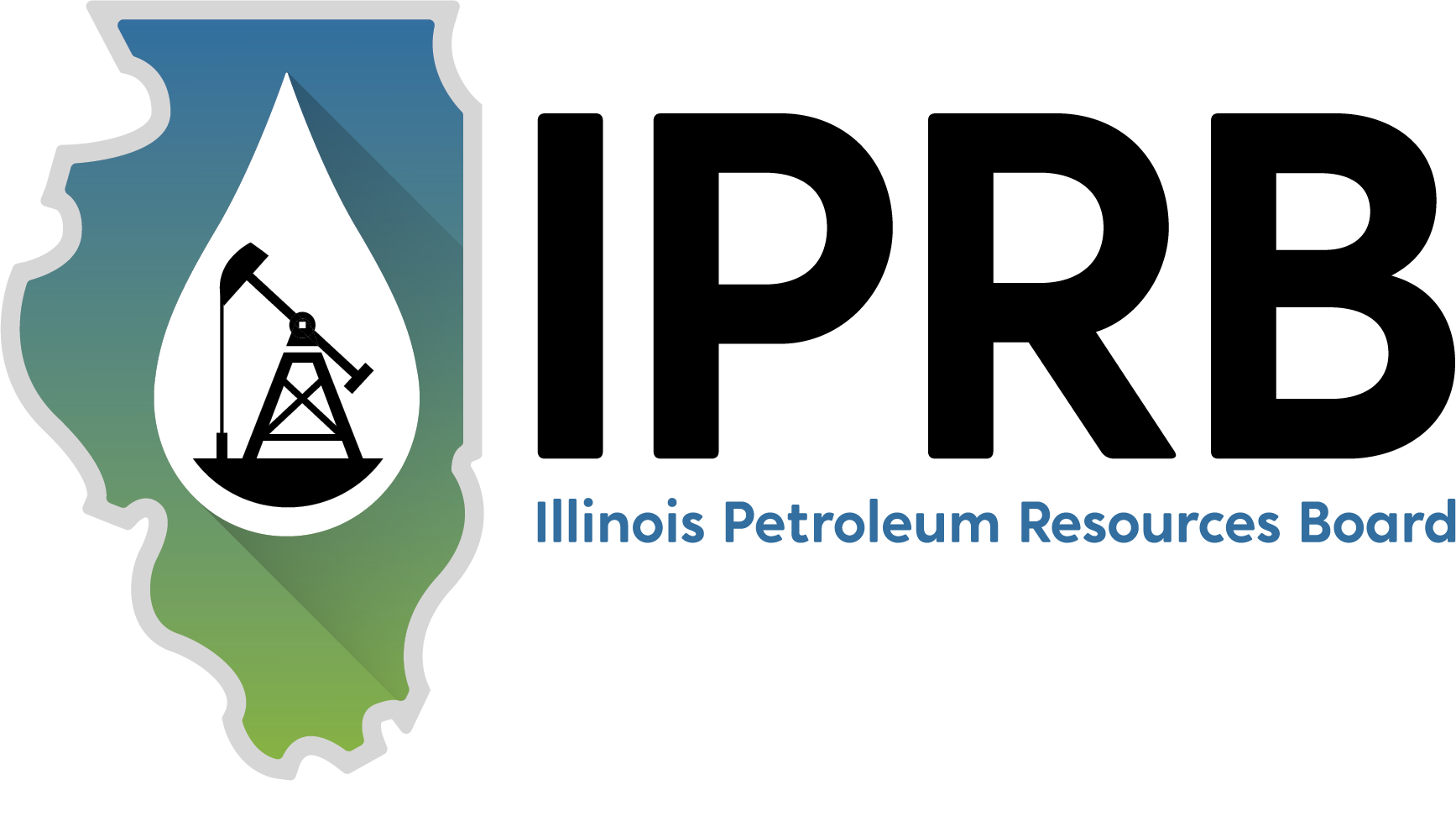We Need More Oil From American Soil – Not From OPEC and Russia
It has been said many times before, but – to the delight of Vladimir Putin and Saudi Arabia Crown Prince Mohammed bin Salman – remains difficult for many U.S. policymakers to grasp: Reducing domestic oil production does nothing to decrease demand. Instead, it leads to increased dependence on the Organization of the Petroleum Exporting Countries (OPEC), Russia and other foreign sources for the oil we need.
As U.S. oil demand has surged to record levels this summer, policies implemented to deliberately decrease or discourage American oil production have resulted in imports from OPEC nearly doubling from pre-pandemic levels. U.S. oil imports from Russia – which is now in cahoots with OPEC as the most notable “+” in the OPEC+ alliance – have also surged. Russia now supplies more oil to the U.S. than any other foreign source aside from Canada.

Incredibly, just eight months after our OPEC imports fell to their lowest level since 1973, the White House recently begged the infamous cartel to increase oil output to keep gasoline prices from soaring ever closer to $4 a gallon.
We’ve been at the mercy of OPEC before. The oil embargo and gasoline shortage crisis of the 1970s and record OPEC imports and $4 pump prices endured earlier this century are just a couple examples. But there is a big difference this time around – we are now under OPEC’s thumb by choice. America now has the ability to ramp up domestic oil production to keep energy costs affordable, but we have instead turned to an international foreign cartel for relief.
The justification for these policies is the belief that constraining U.S. oil and natural gas production will drive down greenhouse gas emissions and help combat climate change. But the disconnect between the intended outcomes and reality is quite stark. Not only do these policies continue to increase energy costs and forfeit our hard-won energy independence, they increase greenhouse gas emissions as well.
Every barrel of oil we choose not to produce in the United States and instead import from overseas increases our carbon footprint, considering imported oil has to be shipped by boat from countries with far more lenient environmental regulations than our own. The same can be said for oil that is transported by rail or truck rather than pipeline, which is why the shutdown of the Keystone XL pipeline makes similarly little sense.
Since reaching a record 13 million barrels per day prior to the pandemic, U.S. oil production has been down about 1.6 million barrels per day this summer. But U.S. oil demand has bounced back to pre-pandemic levels and isn’t expected to wane any time soon.
In fact, the Energy Information Administration (EIA) expects oil to remain the United States’ primary energy source through at least midcentury. The EIA’s projection even takes into account low renewable energy costs and continued renewable energy growth moving forward.
It’s not difficult to see why the EIA is bullish on oil demand. Not only is overall energy demand growing at a faster pace than renewable energy growth – highlighting the fact that renewables are merely a supplemental energy source rather than a replacement traditional energy – more than 55 percent of U.S. petroleum demand is non-gasoline and has no scalable substitute. Even if the 265 million gasoline- and diesel-powered vehicles currently on American roadways disappeared tomorrow, we would still need a lot of oil for many years to come for the 6,000-plus petroleum-based products we use everyday. For instance, petroleum-based feedstocks used to make personal protective equipment for healthcare workers and packaging for products shipped via Amazon and other e-commerce companies are currently driving oil demand growth.
U.S. oil demand will remain strong for decades and the most realistic way to resume the recent the unprecedented combination of low energy costs, economic growth and emissions reductions is producing as much oil and natural gas on American soil as possible. Outsourcing our energy needs to OPEC and other hostile sources will only lead to higher pump prices, increased emissions and Putin and Crown Prince Salman exchanging more high-fives for years to come.

